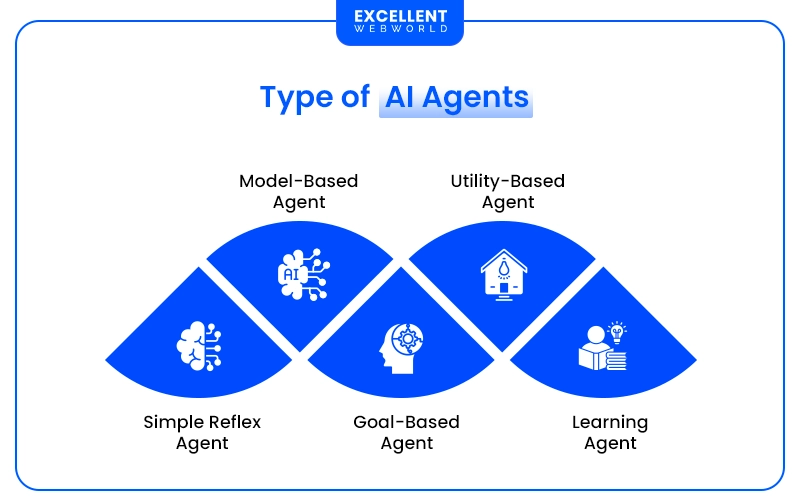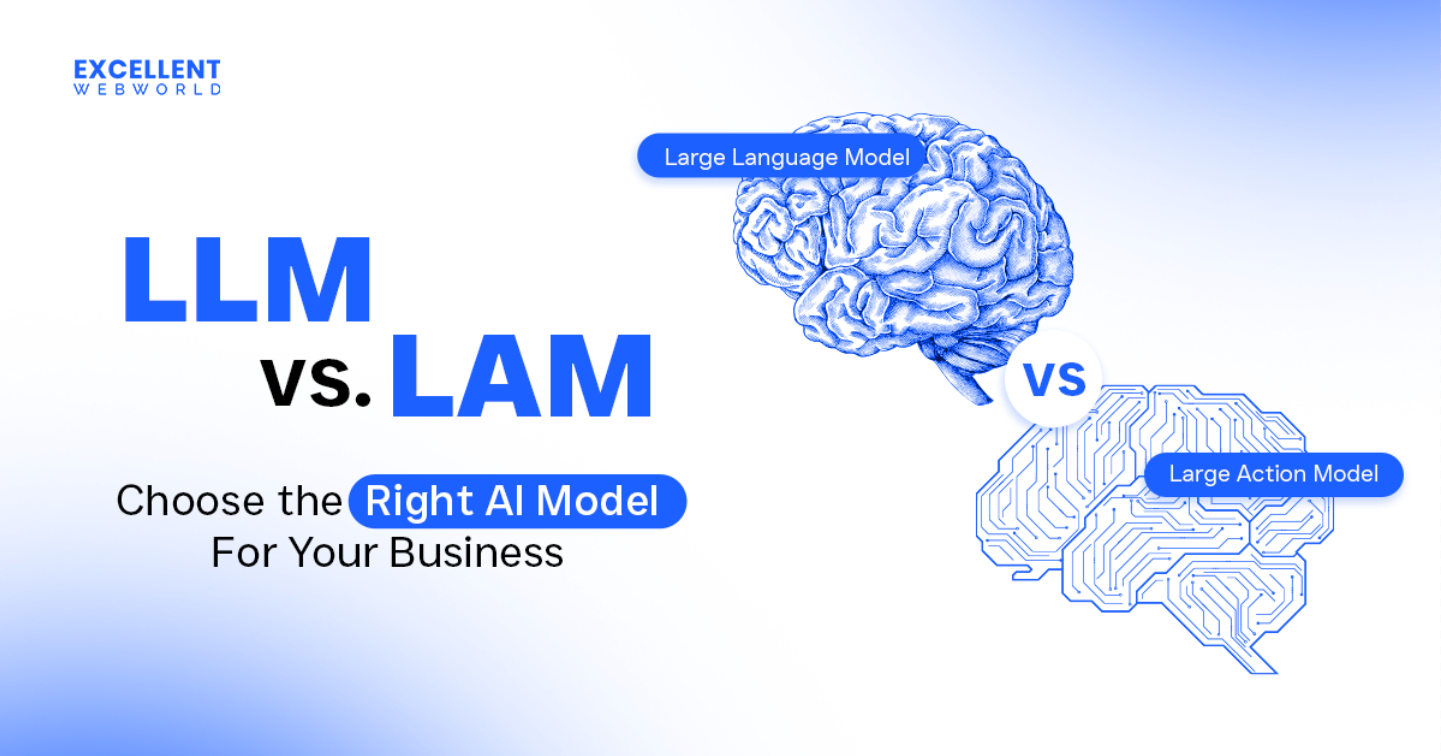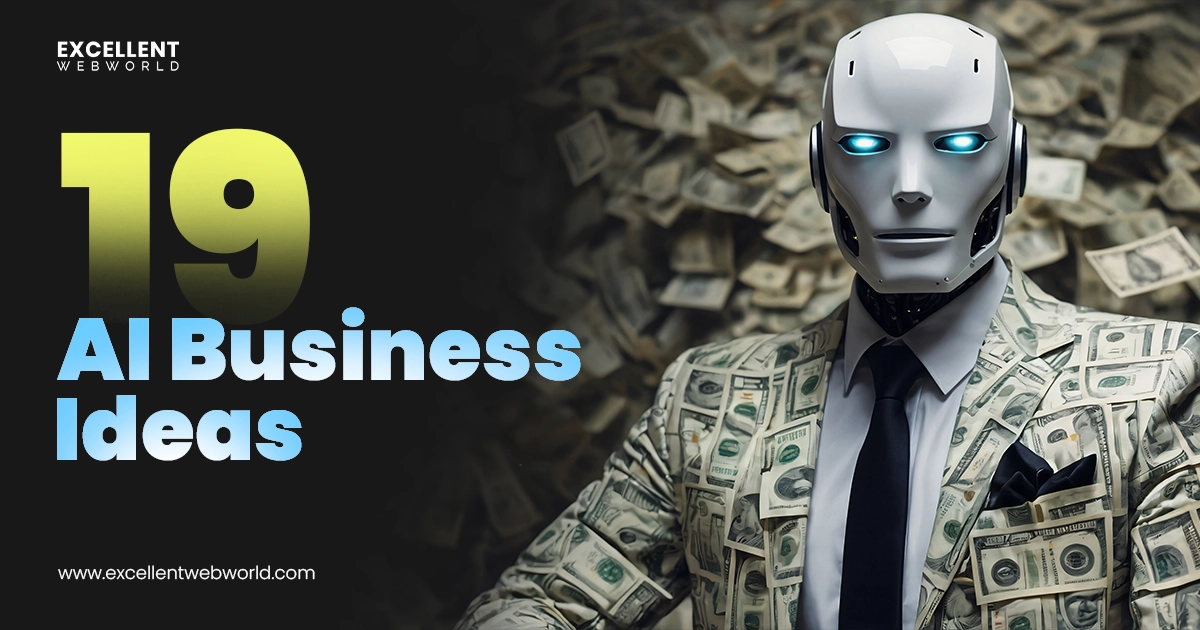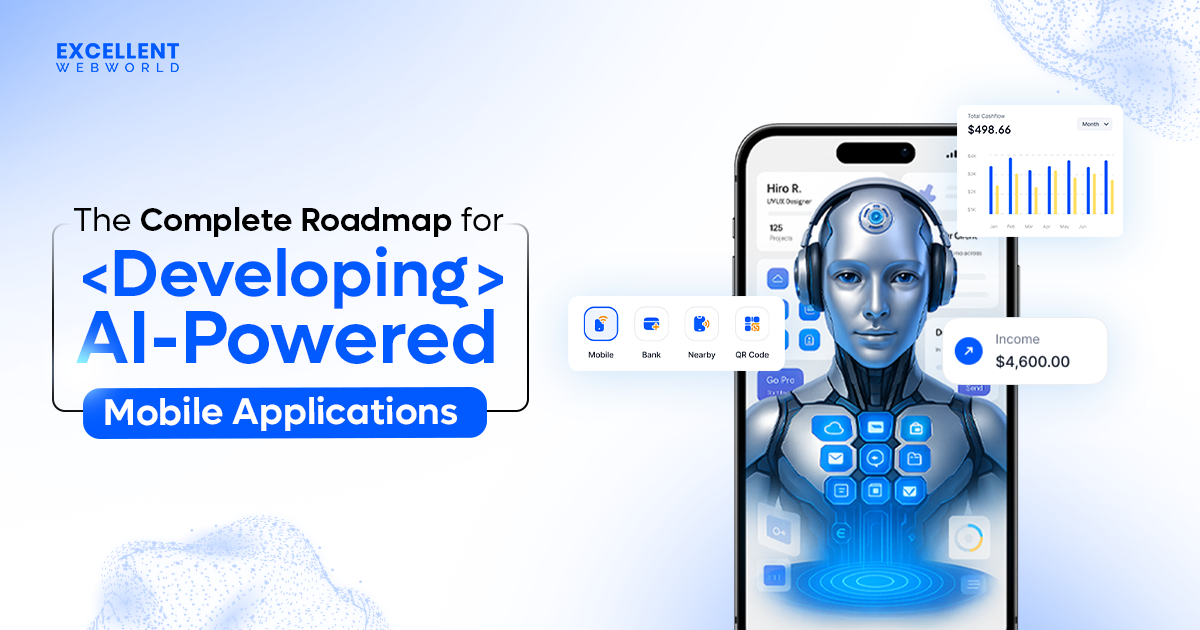Ever feel like you’re drowning in AI hype but struggling to find practical applications for your business? You’re not alone.
While everyone talks about AI, the real game-changers aren’t just chatbots; they’re AI agents that work autonomously to solve specific problems.
As a CTO looking to drive innovation, you need real-world applications of AI that deliver measurable ROI. From email-filtering assistants that protect your team’s focus to inventory management systems that optimize your supply chain, plenty of examples of agents transforming how businesses operate.
These aren’t futuristic concepts; they’re deployable solutions. While we already covered how to build AI agents in a previous article, this guide showcases the examples of the top 13 AI agents that you can leverage in your business today.
What Are AI Agents and Intelligent Agents?
AI agents are smart computer programs that can observe what’s happening around them, consider it, and then act independently to solve problems or reach goals.
Unlike basic scripts or RPA, which only follow fixed rules, AI agents can learn, make decisions, and adapt when things change.
A chatbot answers questions, but an AI agent can go further: plan, make choices, and even use other tools to get things done. This is the essence of AI integration in software development. Many call them intelligent agents or even an AI agent app when they’re built for a specific job.
Self-driving cars or smart supply chains are examples of intelligent agents that use AI to make decisions and act in real time. With growing adoption across industries, many businesses are now collaborating with a reliable AI agent development company to create domain-specific solutions that replicate human-like decision-making.
After knowing autonomous AI agents examples in real life, the subsequent question would be, what are the main types of AI agents? Let’s explore them in the next section.
Types of AI Agents in Artificial Intelligence with Real-World Examples
Here are the different types of agents in artificial intelligence that could transform your business operations.
Each AI agent type has unique characteristics that you should be aware of:
| Type of AI Agents | Description | Examples |
|---|---|---|
| Simple Reflex Agent | Acts only on current input using fixed rules; no memory or learning. | Thermostats, automatic doors, smoke detectors, basic spam filter |
| Model-Based Agent | Uses an internal model to track environment state over time; handles partial observability. | Autonomous vehicles, warehouse robots, game AI characters, smart home systems |
| Goal-Based Agent | Chooses actions to achieve explicit goals; plans using models of the environment. | Pathfinding robots, chess AIs, delivery drones |
| Utility-Based Agent | Selects actions to maximize a utility function, balancing multiple possible outcomes | GPS navigation, financial trading bots, smart thermostats, autonomous vehicles |
| Learning Agent | Continuously improves by learning from experience and feedback. | Recommendation engines, adaptive chatbots, trading AIs |
13 AI Agents Examples and Use Cases Across Industries
AI agents transform industries by automating complex tasks and delivering business value. Here are some of the most popular AI agent examples and use cases in various sectors:
1. Healthcare AI Agents for Medical and Hospital Applications
AI agents in healthcare manage patient data, assist with diagnoses, schedule appointments, and monitor vitals, allowing healthcare professionals to focus on patient care rather than administrative tasks.
Examples:
Real-World Impact:
Mayo Clinic’s AI agents analyze patient data to prioritize emergency cases, reducing wait times by 20%. This example highlights key AI in healthcare statistics, demonstrating measurable benefits in clinical settings.
2. Education AI Agents for Learning and EdTech Solutions
AI agents in education create personalized learning paths, provide tutoring, and grade assignments, helping educators overcome challenges with large class sizes and diverse learning needs.
Examples:
Real-World Impact:
Carnegie Learning’s AI tutoring system provides personalized, adaptive math instruction tailored to each student’s learning style and performance, showcasing the power of AI in education.
3. Manufacturing AI Agents for Industrial Automation
AI agent examples in manufacturing monitor production lines, predict equipment failures, and ensure quality control, addressing inefficiencies and preventing costly downtime.
Examples:
Real-World Impact:
Siemens’ AI agents predict equipment failures up to 36 hours in advance, reducing downtime by 25%.
4. Retail AI Agents for Customer Experience and Personalization
AI agents examples in retail include personalized shopping experiences, inventory management, and pricing optimization, helping businesses overcome challenges with personalization at scale. Understanding the broader impact of AI in retail is key to maximizing these benefits.
Examples:
Real-World Impact:
Stitch Fix uses AI to analyze preferences and create personalized clothing recommendations, increasing customer retention.
5. Real Estate AI Agents for Property Management and Sales
Common generative AI agent examples in real estate include matching buyers with properties, generating descriptions, analyzing market trends, and streamlining property transactions for professionals. Just as companies evaluate factors like property management software cost, AI adoption is becoming a key consideration in modern real estate operations.
Examples:
Real-World Impact:
Zillow’s AI analyzes property data to provide Zestimate values within 2% of the sale price, demonstrating the effectiveness of AI in real estate.
6. Logistics AI Agents for Supply Chain and Delivery Optimization
Logistics companies deploy AI agents to optimize routes, track shipments, and predict delivery times, addressing inefficient routing and visibility challenges.
Examples:
Real-World Impact:
DHL’s AI agents optimize delivery routes with 95% accuracy, reducing costs by 15%, showcasing the power of AI in logistics.
7. HR and Recruiting AI Agents for Talent Acquisition
AI agents in HR can help screen candidates, schedule interviews, and onboard new hires, helping teams overcome resume overload and inconsistent processes.
Examples:
Real-World Impact:
IBM’s HR AI reduces time-to-hire by automating interview scheduling and increases onboarding quality.
8. Sales & Marketing AI Agents for Business Growth
Sales and marketing AI agents qualify leads, personalize content, and optimize campaigns, addressing challenges with lead qualification and personalization at scale.
Examples:
Real-World Impact:
Salesforce’s Einstein AI recommends next best actions, increasing conversion rates by 25%. This is one of the most effective examples of AI agents related to marketing automation.
9. DevOps AI Agents for IT Automation and Workflow Efficiency
Development teams rely on intelligent agents to test code, monitor performance, and detect security vulnerabilities, overcoming testing bottlenecks and deployment complications.
Examples:
Real-World Impact:
GitHub’s Copilot X is one of the most popular AI agents examples that can review code and suggest improvements before deployment to increase productivity by 20%.
10. Legal AI Agents for Contract Analysis and Compliance
Legal AI agents review documents, conduct research, and manage compliance, addressing document review overload and time-consuming research challenges.
Examples:
Real-World Impact:
JPMorgan’s COIN AI reviews commercial loan agreements in seconds versus 360,000 hours previously required.
11. Finance AI Agents for Financial Services and Risk Management
AI agents in financial institutions can detect fraud, assess risk, and provide guidance, addressing fraud losses and risk assessment challenges.
Examples:
Real-World Impact:
American Express’s AI detects fraud in real-time, reducing losses by $2 billion annually, illustrating the impact of AI in fintech.
12. Sustainability AI Agents for Green Business Initiatives
Organizations implement AI agents to monitor environmental impact and optimize resources, addressing challenges with emissions tracking and energy inefficiency.
Examples:
Real-World Impact:
Google uses DeepMind’s AI to reduce data center cooling energy by 40%.
13. Productivity AI Agents for Workflow and Task Automation
Executives use AI agents to manage schedules, prepare for meetings, and prioritize tasks, addressing calendar overload and email overwhelm.
Examples:
Real-World Impact:
Microsoft’s Copilot for Microsoft 365 helps executives with meeting preparation and communications, saving up to an hour daily.
When and How to Use AI Agents in Your Business?
It makes sense to use AI agents when tasks are:
AI agents use cases 2026 show they shine when:
How to use AI agents?
Start with identifying processes that:
Look for areas where complexity meets repetition – that’s your sweet spot for maximum ROI and team satisfaction. To implement these AI agents effectively, you’ll likely need to hire AI developers or hire ChatGPT developers who can customize solutions based on your workflows and tech stack.
And, if customer interaction is a priority, working with an AI chatbot development company can help you know how to build conversational AI agents that handle queries efficiently while maintaining a personal touch.
Build vs. Buy: How Businesses Are Deploying AI Agents Today
Are you trying to determine whether you should build your AI agents or buy ready-made solutions? Let’s make this simple.
When to Build vs When to Buy:
Use ready-made solutions or consider AI development services when:
There are modern AI tools to create smart helpers for your business.
These include:
Build your own when:
The decision to build your own AI agent often depends on the cost to build a chatbot, which varies based on complexity, customization, and required features.
How Excellent Webworld Can Help?
Consult our AI experts to help you go from idea to intelligent agent, custom-built, fully integrated, and secure.
AI Agents as the New Operating Layer for Business
Soon, an intelligent agent in AI systems will work together like a team, handling different tasks while sharing information.
As a technology leader, you’ll see:
The most exciting thing? You can build these systems today, even with limited AI expertise.
Remember when apps transformed business? Agents are next as they’ll become your new operating layer.
At Excellent Webworld, we’ve helped dozens of enterprises implement these agent ecosystems. Ready to see how? Let’s talk about your first project.

Article By
Paresh Sagar is the CEO of Excellent Webworld. He firmly believes in using technology to solve challenges. His dedication and attention to detail make him an expert in helping startups in different industries digitalize their businesses globally.




